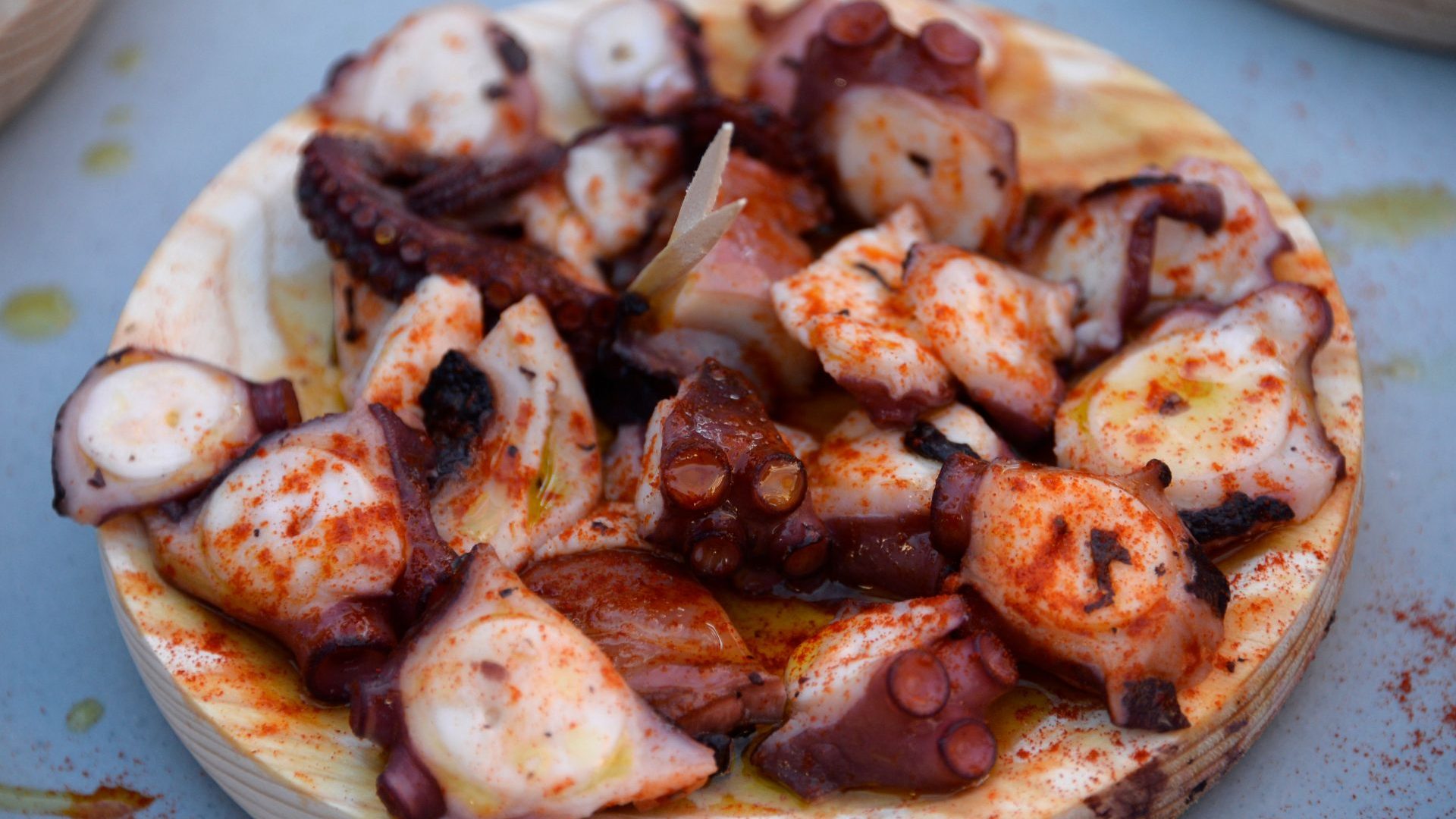Years ago, a senior European diplomat gave me his theory on why you eat better in France and Spain. In Britain, he said, food has become part of the class system. Workers eat in a different style from their bosses. In France and Spain, they don’t.
In Galicia, northern Spain, for the new year, I thought of this. The humblest street cafe can be relied on to rustle up great plates of fresh seafood, perfectly cooked with sauces of garlic or pimento, and a glass of local white wine. The regional speciality, octopus, is served everywhere, always on a small wooden plate.
They are also served in the Parador hotel in the small fishing town of Cambados. Paradors are a chain of state-owned hotels – the Spanish do not have the ideological horror of the state that’s sadly so prevalent in Britain.
This means they can consciously set out to benefit the local economy, by specialising in local food and wine. The Parador Costa da Morte, for example, opened on Galicia’s west coast in 2021, just outside the fishing village of Muxía, part of the plan to revive the local economy after the disastrous 2002 Prestige oil spill.
Paradors are often found in splendid old buildings. In Cambados, a big 17th-century house belonging to a wealthy family was gifted to the town in the 1960s by two sisters who were the last of the family, and the town sold it to the Parador group. But the building had structural problems, and so it was torn down and rebuilt exactly like the original.
In Cambados, the central square has a 15th-century church and a 16th-century palace, and the seafront is dotted with pools and islands and inlets and vast rock pools. It’s a lovely place. In winter it’s untouched by the modern world, but in the height of summer (so I was told) it’s heaving with tourists. General de Gaulle stayed in the Parador in 1970, five months before his death, when he visited the cathedral in nearby Santiago. De Gaulle was a foodie, too.
So New Year’s Eve dinner promised to be a gastronomic treat. The five-course meal, served with no stateliness by men and women who were happy to share a joke with the diners as they worked, began with half a lobster, accompanied by a glass of the local Albariño.
Then came the main event – a thick and tender steak, medium rare, just as pink inside as it should be and no more. There are not many restaurants that can cook steak for 120 diners and get each order exactly right. Locally, they only make white wine, so the steak came with a strong, smooth Ribera del Duero from faraway Castile.
The Spanish eat late. By the time the dessert arrived it was perilously close to midnight. Little packs on each chair turned out to contain pointy paper hats and small plastic horns, and the television in the corner offered two excitable presenters. Sadly, neither of them was the famous Cristina Pedroche, whose choice of gown for New Year’s Eve is the subject of weeks of speculation in the Spanish press. It’s generally quite a revealing gown, and on the night it was considered a bit too risqué for the respectable middle-aged clientele. The management had chosen an alternative channel.
At midnight, instead of singing Auld Lang Syne, you eat grapes as the 12 bongs ring out from the Puerta del Sol in Madrid. Everyone has a bunch of 12 grapes. You eat one with each of the bongs, one for each of the coming 12 months. The Puerta del Sol seemed to go faster than Big Ben; I got left behind at bong five.
Midnight done, we all went off to dance.
Staggering out in the small hours, determined never to eat another thing in our lives, we found a series of small bars, all full of folk drinking wine or beer. We stopped for coffee in one at random and heard ourselves ordering plates of octopus and other seafood. You can eat well in Galicia.



